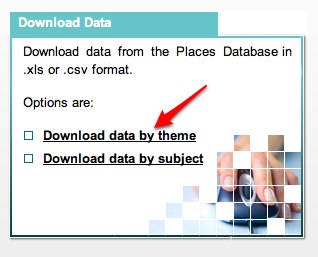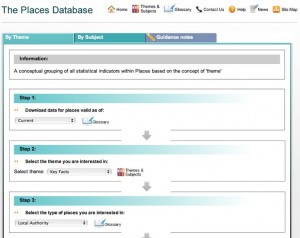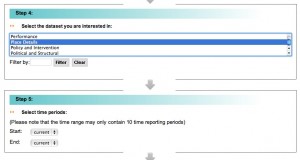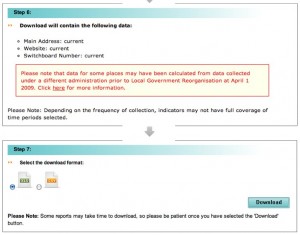A few interesting sites I’ve come across in the last few weeks have got me thinking – always dangerous – and have also connected some stuff in my head. As always, I might have got this wrong, but thought it worth sharing.
Some of the most exciting uses of the web to emerge over the last couple of years have used the power of web 2.0 to foster conversation online amongst people with things in common, who might not otherwise have found each other.
This is effectively what I am banging on about in the talks I give on this subject, putting together the apparently opposing aspects of the web which I label – in line with the books of the same titles – The Long Tail and Here Comes Everybody. That is to say that the web allows us to be incredibly individual online, to find information that’s incredibly niche, to write our own blogs about very esoteric subjects (the Long Tail bit). But at the same time, the web connects us, so no matter how apparently individual our interests, we can always find others into the same stuff – whether they are geographically near or far (the Here Comes Everybody bit).
By combining these two things – individual interests and self organising, websites can create new communities for people who may have otherwise thought they were alone. We can belong to as many of these communities as we like too, no matter how apparently contradictory – just like our own personalities. For instance, I could be a member of an online conservation group, as well as a Range Rover owners’ community. Belonging to one need not preclude me from another as long as I feel comfortable with it myself. This would not necessarily be the case with other, mainly offline groups – political parties being one obvious example.
This is incredibly powerful – and potentially very disruptive. There are a few examples of mass scale communities which are often trotted out – NetMums is one, Money Saving Expert another – but these are generally technically pretty traditional. The new communities are increasingly targeted at niche areas and are increasingly sophisticated in terms of the tech.
Disruption is considered a bad thing in many circles – wrongly, as is failure (the best we can ever hope to do, after all, is fail better). In fact, disruption is just doing things in a different way – perhaps bypassing process or procedure, or creating a whole new process in place of the old one. It’s just change, really.
These new, disruptive communities bring people together, and it is at that point that real change can start to happen. Websites don’t really change anything – but people do. This has a considerable number of implications for many different organisations, but particularly government. This ranges from what kind of organisations and groups should be consulted on issues to actually who should deliver services.
Here are some examples, which are those interesting sites I mentioned at the top of this post. They aren’t necessarily new, but are great examples of what I’m talking about.
PatientsLikeMe
PatientsLikeMe is a US based site which creates communities out of people with similar health complaints. It allows members to share experiences, information and knowledge about their conditions, with obvious benefits. Those people living in small rural locations, for example, are unlikely ever to meet other folk with similar issues – but online it is easy to connect and discuss. Members of the site also share data relating to their illness, which in turn is shared with partner organisations to help develop cures.
Enabled By Design
Set up in the UK by Denise Stephens, with help from Dominic Campbell and others, Enabled by Design
…is a community of people passionate about well designed everyday products. By sharing their loves, hates and ideas, Enabled by Designers challenge the one size fits all approach to assistive equipment through the use of clever modern design.
The site brings together people who have great ideas for design in assistive and other equipment, as well as taking contributions from those who spot great – and terrible – examples of design out there now.
Help Me Investigate
Help Me Investigate is a site that encourages people to get together and, well, investigate stuff. It’s a mixture of local journalism and a social network. People list things they want to investigate, and others join them, adding what they find out to an investigation page online that everyone involved can see.
With a team boasting the best in networked journalism and technology that Birmingham has to offer (Paul, Nick and Stef) Help Me Investigate is a great site for bringing citizens together around the issues that matter to them – and issuing challenges to public and private organisations.
Signpostr
Signpostr is a very new site, only just out in Alpha testing mode. The brainchild of School of Everything‘s Douglad Hind and Colin Tate, Signpostr is a community for job seekers, particularly those leaving education into the current job market. It offers three things:
- a space to talk honestly about the realities of looking for work at a difficult time;
- a user-generated resource directory, where people can share information about resources useful for finding work or living cheaply;
- and a tool for organising and developing your own projects.
There are an awful lot of government sponsored initiatives out there to help people get (back) into work during the recession – and it will be fascinating to see whether a self organised community can add something that ‘official’ projects cannot provide.
FreeLegalWeb
FreeLegalWeb describes itself as
…a project designed to deliver a web service that joins up and makes sense of the law and legal commentary and analysis on the web, providing a substantially more reliable, useful and efficient service than is currently available.
So, the current arrangements are perceived to be failing people, so here is a self-organised attempt to put that right. A great team is behind the project, including Nick Holmes, Robert Casalis de Pury and Harry Metcalfe; and support is being provided by the Cabinet Office, OPSI, BAILII, the Open Knowledge Foundation and mySociety. Well worth keeping an eye on.
All of these community projects have identified a need where government or the market is failing people, and have stepped up to fill that gap, using digital technology as a cost effective way of bringing large numbers of people together in one (online) place.
These communities are also, I think, great examples for local authorities to follow when making applications to the (deep breath) Communities and Local Government Customer-Led Service Transformation Capital Fund which Ingrid at the IDeA has been doing so much to promote recently.
This fund is looking for projects that fill a genuine need for citizens which isn’t currently being met, to provide information to key identified groups of people and focusing on specific issues that have been made priorities by local government. It isn’t really about getting those little projects kick started that you’ve never found the money to do – it strikes me that these sites funded by this money will be new ideas – and big, scalable ideas too.
Those interested in going for the funding should be looking at the sites I have mentioned above, and thinking what are the issues where citizens currently aren’t getting the access to information, or the conversations, that they need.
Beyond the CLG dosh, though, is a bigger question for government, which is whether it should be involved in building these sites at all. There is a convincing argument that says they shouldn’t, and that self organised action is entirely preferable.
I agree with that view to an extent, and in an ideal world, that’s how it would work. But where government – local or otherwise – can help kickstart that community building process, whether by acting in a convening capacity, or investing in the necessary technology, promotion and community management work, it should. It need not matter whether an online space is set up by a community activist or a local council – just as long as it does the job required and is run in the interests of its members.




